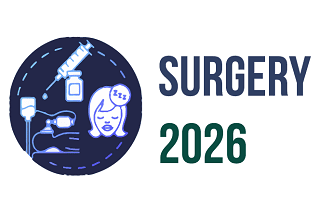4th International Conference on
Surgery and Anesthesia
November 26-27, 2026 | Dubai, UAE

Surgery 2026

University of Regensburg, Germany
Title : Designing and Managing Integration and Interoperability of Intelligent and Ethical Ecosystems
Abstract:
For meeting the financial, quality and safety challenges as well as expectations of the patients, health and social care systems around the globe currently undergo a transformation towards personalized, preventive, predictive, participative precision medicine (5PM), supported by technology. It considers individual health status, conditions, genetic and genomic dispositions in personal social, occupational, environmental and behavioral context, understanding the pathology of diseases and turning health and social care from reactive to proactive. The aforementioned transformation is strongly supported by technologies such as micro- and nanotechnologies, advanced computing, artificial intelligence, autonomous systems and robotics, knowledge representation and management, etc. Beside their opportunities, those advanced technologies also bear risks to be managed, requiring the detailed consideration from a humanistic, moral and ethical perspective. For enabling communication and cooperation between all actors from different disciplines involved, using different methodologies, perspectives, intentions, languages, we shall understand and formally and consistently represent the multidisciplinary, highly complex and dynamic 5PM ecosystem. The outcome is a system-theoretical, architecture-centric, ontology-based, policy-driven approach for designing and managing intelligent and ethical 5PM ecosystems. The necessary model and framework has been developed by the author and meanwhile standardized as ISO 23903 Interoperability and Integration Reference Architecture. The formal representation of any ecosystem and its development process including examples of practical deployment of the approach are presented in detail. This includes correct systems and standards integration and interoperability solutions.
Biography:
Dr.
Bernd Blobel received a multi-disciplinary education, covering mathematics,
physics, systems engineering, electronics, medicine, informatics and medical
informatics, including habilitations in medicine and informatics. He was Head
of the Institute for Biometrics and Medical Informatics at the University of
Magdeburg, and thereafter Head of the Health Telematics Project Group at the
Fraunhofer IIS in Erlangen. Thereafter, he acted until his retirement as Head
of the German National eHealth Competence Center at the University of
Regensburg. He was leadingly involved in many countries health digitalization
as well as electronic health record strategy. He was and is still engaged in
international standardization at ISO, CEN, HL7, OMG, IEEE etc. Furthermore, he
still engaged in international higher education.
